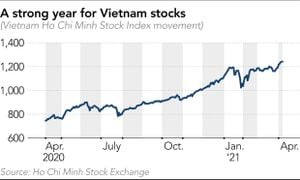Thailand is witnessing significant upheaval within its political party structures, particularly concerning the registration process mandated by new regulations from the Election Commission. The Pheu Thai Party, one of the country's leading political entities, finds itself grappling with the potential ramifications of these changes, which have prompted intense discussions among party members and officials.
Recently, the Election Commission has introduced guidelines aimed at enhancing transparency and accountability within the political party registration framework. These guidelines have led to broader conversations about the structural integrity and operational capabilities of various political parties as Thailand gears up for its upcoming elections.
According to a representative from the Pheu Thai Party, "We need to adapt to the new regulations and understand how they will affect our party’s structure and future campaigns." This sentiment reflects widespread unease within the party and the necessity to reassess strategies to comply with the new norms.
At the heart of these discussions is the impact of the changes on party dynamics. The new registration process could reconfigure alliances and power balances among existing political entities, thereby altering the political sphere significantly. The Election Commission spokesperson elaborates on the commission's intentions by stating, "The commission is focused on making the registration process more transparent and accountable." This aim, though noble, raises questions about how practical implementation will affect the established parties.
The public's perception of these changes also plays a pivotal role, highlighted by recent opinion polls. Surveys suggest mixed feelings among constituents, with some voicing concerns about the perceived tensions between Pheu Thai and its coalition partners. This has led to speculation about the stability of the current government and its ability to present a united front heading toward the elections.
Political analysts have pointed out the necessity for Pheu Thai to bolster its internal cohesion to navigate the newly introduced regulatory challenges effectively. The broad spectrum of responses from party leadership indicates recognition of the changing political tides. The need for unity among party members is now more pressing than ever as they face external challenges from other political factions eager to capitalize on any perceived weakness.
While the Pheu Thai Party navigates these waters, attention is also directed toward the broader ramifications for Thailand's political future. Analysts suggest the implementation of new registration rules might initiate significant shifts not just within Pheu Thai but across the political spectrum. This could potentially open the doors for new players or factions to emerge, fundamentally changing Thailand’s political makeup.
Overall, Thailand's political environment is charged with uncertainty as both established parties and newcomers prepare to adapt to the new registration protocols imposed by the Election Commission. The Pheu Thai Party, faced with the imperative to redirect its strategy, may find itself at the climax of tension and opportunity, needing to reaffirm its standing against both its political rivals and the expectations of the populace it serves.
Looking forward, the potential outcomes of these registration issues remain ripe for speculation. With national attention focused on the next elections, how political parties will align or misalign could become the defining narrative of the upcoming months. Will Pheu Thai take the necessary steps to unify and adapt, or will fractures develop amid the pressure of new regulations? Only time will tell as Thailand embarks on this new chapter of its political evolution.



